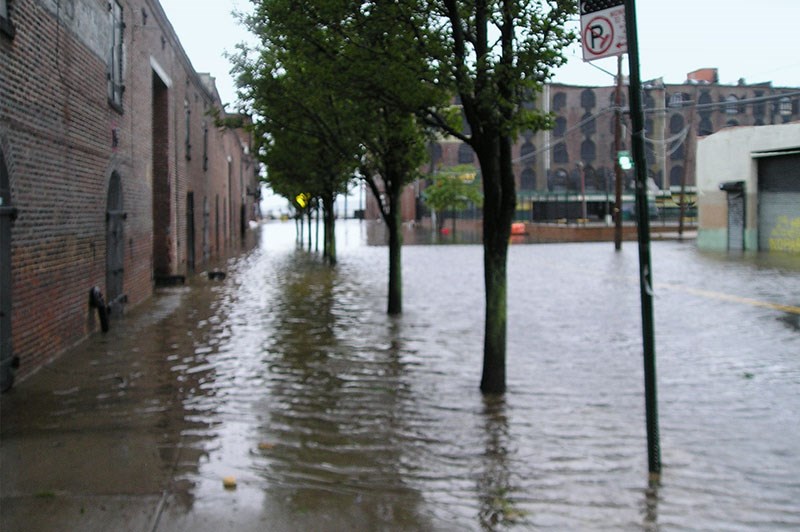New York City’s coastal neighborhoods have long contended with flooding, but today, the stakes are higher than ever. Communities from Red Hook to Far Rockaway have historically come together to manage rising tides, yet the intensifying effects of climate change make these efforts increasingly urgent.
In my Brighton Beach neighborhood, I’ve seen firsthand how frequent flooding and rising temperatures disrupt daily life. These experiences fuel my determination to confront climate change and strengthen my community’s resilience. We are at a pivotal moment: we must either act to protect our neighborhoods or risk being overtaken by rising waters. I’ve chosen to act, and as a community engagement research assistant at FloodNet, an organization of climate researchers, I am committed to helping coastal communities across New York City prepare for an uncertain future. Our communities are rich in local knowledge, and it's critical we harness that alongside the tools and resources available to us.
Community Engagement and Climate Resilience
FloodNet, a partnership between the City University of New York, New York University and city agencies, is designed to track and understand the frequency, severity and impact of flooding across New York City. By installing real-time flood sensors in neighborhoods vulnerable to flooding, FloodNet collects hyperlocal data displayed on a public dashboard, enabling both residents and officials to monitor flooding in real time and track its progression
For Brooklyn’s waterfront neighborhoods, accessing real-time data is important. It allows residents to assess flood conditions, make safer decisions and observe long-term flooding trends. The data archives help residents track how conditions have shifted—whether previously dry streets now flood or if flooding during high tides is deeper. This insight can help coastal communities understand their risks and work towards long-term resilience. FloodNet’s data can help inform much-needed upgrades to stormwater infrastructure and green solutions that can prevent similar challenges in the future.
FloodNet’s work goes beyond collecting data—it empowers communities to take action. We know that flooding isn’t just caused by rainfall; it's a result of outdated infrastructure, overburdened sewers and low-lying areas. FloodNet helps residents understand the reasons behind flooding and take immediate action, while also driving long-term solutions for a more resilient future.
Community Empowerment and Preparedness
As a resident of Brighton Beach and someone who has seen the devastating effects of flooding firsthand, I know that for years, coastal neighborhoods in NYC faced flooding without the tools or information needed to respond effectively. Now, with access to real-time flood data, we have a critical tool to make informed decisions, organize community responses and push for infrastructure improvements. Paired with workshops, educational modules, community forums and direct collaboration with residents, communities are encouraged to take proactive steps toward flood preparedness.
For me, community engagement is essential to preparedness. When we share knowledge, organize and act together, we become more resilient. I’ve seen how providing communities with flood data sparks action, whether it’s hosting meetings, pushing for city support or simply being more aware of flood risks. Preparedness isn’t just about reacting to an emergency; it’s about building knowledge and using the tools available to prevent or mitigate disaster. Preparedness is about understanding our vulnerabilities and taking control of the solutions.
FloodNet offers a resource for fostering flood resilience in neighborhoods already feeling the effects of climate change. Through data-driven planning and community collaboration, the community engagement team I work with ensures that flood sensor data is both meaningful and useful to the communities we serve. The data and other relevant information equips communities, organizations and researchers with insights into flooding trends and severity, enabling them to take informed actions.
I am inspired by this. I want to ensure that every resident has access to the tools and knowledge they need to safeguard their homes and families. My hope is to inspire others in New York City’s coastal communities, beginning at home with Brighton Beach, to feel empowered, to act proactively and to prepare for the challenges that lie ahead.
Sofia Mariyamis is a Brighton Beach, Brooklyn resident and the the community engagement research assistant at FloodNet, a team composed of researchers and practitioners at New York University, the City University of New York, and New York City government agencies working in collaboration with stakeholders to collect and share data that contribute toward flood risk mitigation and building community flood resilience.




